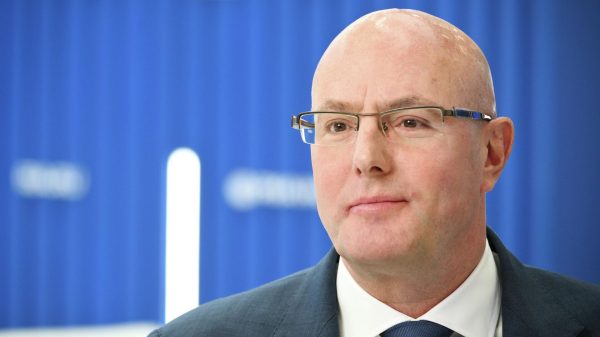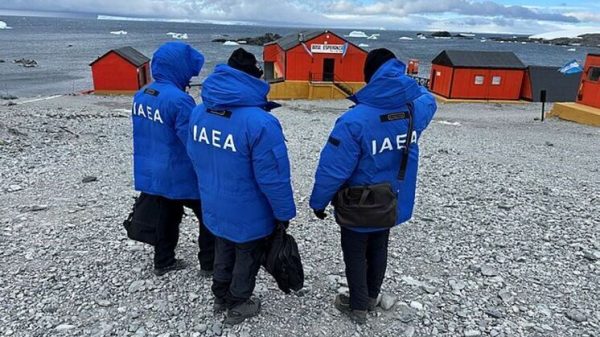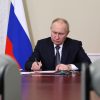Papua New Guinea will not get its first Covid-19 vaccines until next month at the earliest, despite an uncontrolled coronavirus outbreak spiralling across the country, hospitals shutting their doors to patients, and an already vulnerable healthcare system on the verge of collapse.
At Port Moresby’s general hospital, 40% of mothers admitted to the labour ward were reported to have tested positive for Covid-19, but could not be separated from other mothers because there is no isolation labour ward for them.
And the crisis could worsen further still: the burial ceremony of PNG’s first prime minister, and its grand chief, Sir Michael Somare, is expected to attract tens of thousands to the northern coastal city of Wewak later this week, an occasion that could serve as a super-spreader event, in turn seeding the virus all over the archipelago.
Papua New Guinea hospitals run out of funding as Covid cases surge
Read more
By global standards, the number of confirmed cases in PNG is low: 1,670. But fewer than 50,000 tests have been carried out across PNG – population nearly 9 million – for the entire pandemic, and the actual rate of infection is factors higher.
In many places outside of the capital Port Moresby, there is no testing at all. PNG government sources say the actual case rate could be 10 times the official figure.
Late Tuesday, the government announced it had sourced 200,000 AstraZeneca doses from Australia, and 70,000 from India.
“We are now in the process of getting the vaccine across, hopefully by April,” the prime minister, James Marape, said.
“Health workers will be vaccinated first as we are seeing a growing number of health workers who are getting infected in the line of their work.”
The government is fighting not only burgeoning infections, but entrenched resistance to vaccinations, with conspiracy theories abundant through WhatsApp groups and social media, and intransigent widespread beliefs such as that “Melanesians are immune to coronavirus”.
Crowded Port Moresby has been the epicentre of PNG’s outbreak, but there are concerns too with growing case numbers in Western Province, which shares a porous border with West Papua, where infection rates are amongst the highest in Melanesia.
The governor of Oro province, Gary Juffa, recently recovered from Covid-19 himself, said the number of infections across PNG was far higher than official figures because many people were not being tested despite showing symptoms. He said “years of neglect” and corruption inside PNG’s healthcare system was “now uncovering a grim reality”.
“I believe that the situation is fast becoming serious and Papua New Guinea’s health system is under serious constraints.”
Prof Glen Mola, head of Port Moresby General’s obstetrics and gynaecology ward, told the Guardian vaccines were needed urgently.
“We have Covid-19 cases everywhere, about 40% of the mothers brought in to the labour ward have been tested Covid-19 positive,” he said. “But we can’t isolate them because there is no isolation labour ward.
“We are trying our best to help these mothers but they are bringing in Covid-19 from their communities and infecting health workers.”
The hospital – PNG’s largest – has been forced to close entire sections of the hospital after 40 staff members tested positive. The hospital is also running short of gloves and other personal protective equipment.
Other hospitals around the country – including Mount Hagen – have also shut their doors because of swingeing budget cuts. Some hospitals have received only one-third of the money needed to remain open, and have been forced to shut down services, just as Covid cases surge.
Sir Michael Somare, Papua New Guinea’s ‘Father of the Nation’, dies aged 84
Read more
St John Ambulance commissioner Matt Cannon said that, without intervention, PNG faced an uncontrollable outbreak.
“We are not at the tipping point now – the tipping point was three weeks ago,” he said. “We are anticipating hundreds more cases, and potentially this will increase to thousands. We are at alert level. There are big alarms going off. Health workers are being affected.”
“We are now not working towards elimination; we are now at the stage that we can only try to slow the spread and protect as many lives as possible.”
Allan Bird, governor of East Sepik province, said the delay in rolling out a vaccine to Papua New Guineans would cost lives across the country.
“PNG did not order or pay for any vaccines in 2020, so we are not entitled to any vaccines,” he said. “The only vaccines available to us are donated by friendly governments. There is already a long waiting list for vaccines.”






















































Свежие комментарии